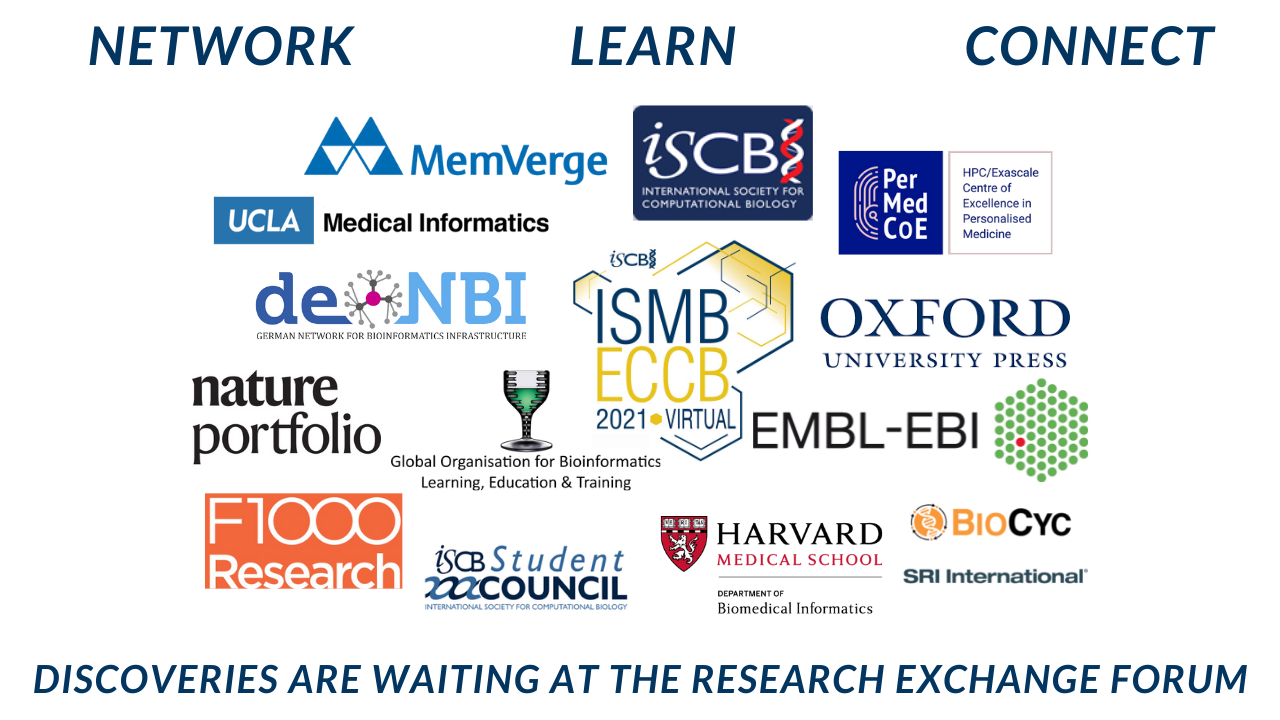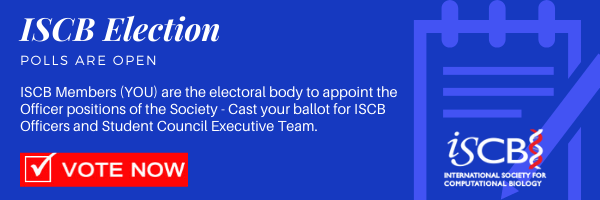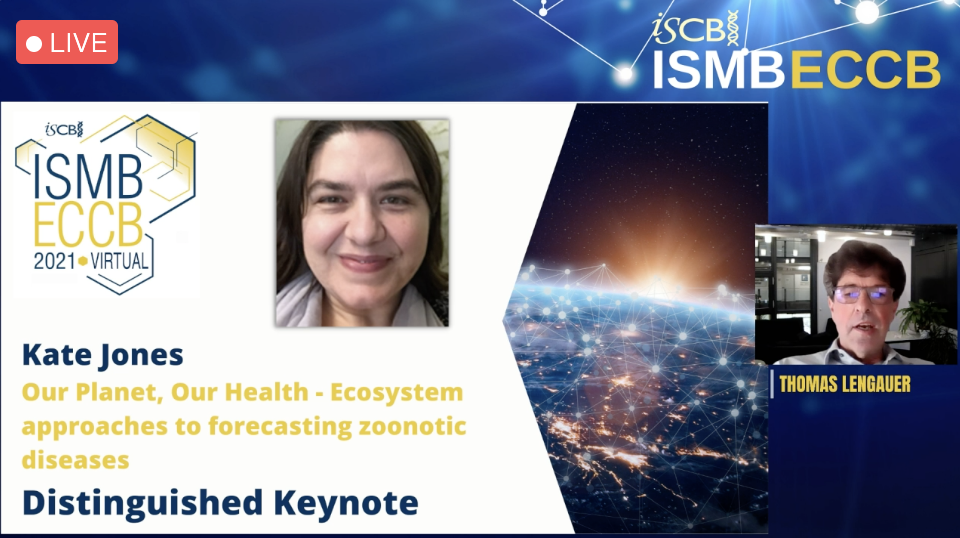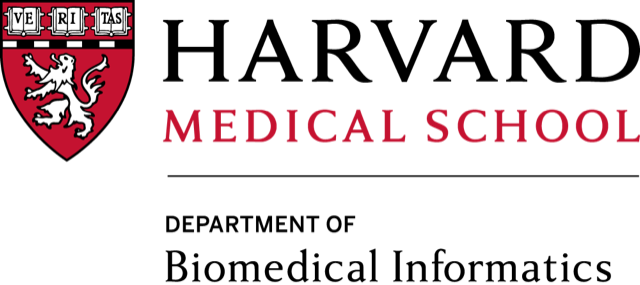COSI Recaps
CAMDA
Virtual CAMDA 2021 took off to a full house, with the well over 100 delegates likely grateful that they didn't have to cram into a real room, while reducing their carbon footprint by 50 tons of carbon dioxide. Opening the session, Professor Francesca Ciccarelli of the Francis Crick Institute highlighted advances in predicting cancer driver genes not just at the cohort level but for individual patients, and their cumulative effects in age. This was followed by a variety of contributions by CAMDA delegates from Cambridge, Isarel, Kyiv, and Stanford, who exploited an impressive variety of modern AI language models to identifying scientific papers relevant to drug induced liver injury, as benchmarked by a CAMDA challenge organized jointly with the US FDA with support of IARAI Vienna. The session was rounded off by reports on testing the robustness and reproducibility of computational genomics tools, an in silico evaluation of SARS-CoV-2 primer performance, and an intriguing study of mechanistic models of COVID-19 infection and antiviral interventions. Join us on Thursday for keynotes by Director Weida Tong (NCTR/FDA) about AI myths and their implications on regulatory science, and Director Nikos Kyrpides (DOE Joint Genome Inst) cover Microbiome Data Science from the Earth Microbiome to the Global Virome. The Thursday sessions will then cover studies of antimicrobial resistance and its relationship to phages, as well as a new set of reports on using AI to identify papers on adversarial drug reactions - join us for the talks and lively discussion on the round tables! Programme details also at www.camda.info
EvolCompGen
On the last day of our EvolCompGen COSI, we featured seven enriching presentations on a variety of topics concerning the evolution of genomes, genes, or at the intermediate level of “syntenies” (chromosomal gene clusters). At the gene level, we discussed quantification of introgression (gene flow between species), convergent evolution, phylogenetic profiling, and the identification of new metabolic pathways. At the genome level, we had talks on whole-genome duplication, and more specifically an innovative method for allo-polyploidy versus auto-polyploidy prediction was highlighted. A new model to infer tumor phylogeny and call variants using single-cell data was also presented. The closing talk was on Super-Reconciliation, a novel method for inferring the evolution of syntenies through segmental duplications and HGTs. This presentation made the bridge with the panel discussion, where we discussed a variety of open questions on ancestral genome reconstruction, orthology prediction, and unifying methods for synteny evolution.
The capstone of this year's Evolution and Comparative Genomics track was a panel discussion focusing on the evolution of chromosomal gene clusters, ancestral genome reconstruction, and phylogenetic comparative methods. A spirited discussion ensued touching on tradeoffs between computational costs and accuracy and how the rapid growth of genomic data sets influences this tradeoff, the pros and cons of parsimony versus probabilistic models, hybrid approaches that attempt to assess uncertainty while preserving the speed of parsimony and how such methods can be used to infer convergent evolution, and, finally, whether convergent evolution introduces noise in phylogenetic inference. These discussions aroused so much interest and generated such a lively exchange amidst the panelists, moderators, and participants, that we continued brainstorming for another full hour in a new Zoom e-space after the session ended officially. We wrapped up our three-day COSI enriched with new ideas and new collaboration perspectives.
Stay tuned for award/poster winners and special mentions during the ISMB/ECCB 2021 closing session!
iRNA
The iRNA COSI 2021 kick-off was given by Manuel Irimia who provided a fascinating keynote on the evolution of alternative splicing networks and the extent of their tissue conservation. Today’s contributed talks focused on mRNA stability, circular RNA evolution and prediction, the study of transcriptomics in health-related applications and tools for the analysis of 3D RNA structures. Our first day ended with entertaining flash talks / quiz and poster session.
Text Mining
TM COSI featured two outstanding keynotes, one by Dr. Pysalo (University of Turku) highlighting the evolution of transformers in the biomedical field and opportunities for collaboration. The second keynote was a joint presentation by Dr. Ball (FDA) and Dr. Hirschman (MITRE), reporting on the quest for text mining methods to modernize post-market drug safety assessment at FDA, the needs and challenges, followed by a description of results from the evaluation of methods for automated extraction of adverse drug events, and experiments with humans-in-the-loop. The session selected talks covered applications of text mining methods (both traditional machine learning and Deep learning) across various fields, including -omics (metagenomics, annotations of -omics samples), protein folding, clinical discharge letters, biocuration, and science communication. The COSI ended with the text mining spotlight section with two talks. First, Dr. Lu described efforts at NCBI to bring to the community freely available tools and methods that have been developed in light of their own needs, with a focus on LitSuggest, a web-based system for biomedical literature recommendation and curation, and on TeamTat an annotation tool for team collaboration. Finally, Dr. Poon from Microsoft Health Futures provided an overview of PubMedBERT, and its advantages over other BERT-based models in the biomedical domain.
RegSys
Spread over three days, and attracting approximately 100 attendees in each session, RegSys presented cutting-edge research in regulatory & systems genomics. We enjoyed exciting keynote talks from Céline Vallot, Fabian Theis, Anaïs Baudot, Olga Troyanskaya, Camille Berthelot, and Juanma Vacquerizas, along with four proceedings papers and seventeen contributed talks.
Day 1 focused on advances in characterizing cell type-specific regulatory networks using single cell assays. The keynotes, in particular, demonstrated the power of applying single cell technologies to characterize epigenomic features of cancer drug resistance, and regulatory relationships in large-scale perturbation screens. Day 1 closed with several interesting talks that featured different ways to characterize cooperative interactions between transcription factors.
Day 2 broadened the track themes. Inspirational keynotes integrated multi-modal data types using increasingly powerful computational techniques, yielding insights into the mechanisms underlying human diseases. Day 2 contributed talks spanned themes such as profiling cell-specific splicing events, determining the impact of viral integration events, and analyzing nucleosome features on cell-free DNA.
Day 3 turned to the theme of comparative regulatory genomics, with a keynote and contributed talk characterizing how cell-specific enhancers have evolved across mammals. Day 3 also focused on advances in profiling the three-dimensional organization of the genome. Talks demonstrated methods for increasing the resolution of chromatin interactions, while a keynote cast doubt on whether genome organization influences gene expression.
A steady theme throughout all days and sessions was the growing adoption of neural network techniques in regulatory genomics, with interesting methodological advances demonstrated in several application domains. We had a very enjoyable virtual program overall, and we encourage the RegSys community to continue our conversations on the RegSys slack channels:
https://join.slack.com/t/regsyscommunity/shared_invite/zt-tprp1q5g-pNcDNiFUXyJQacdfY1nGWg
|
| 10:30 UTC: |
Exhibitor Demos:
EMBL-EBI: Using the EMBL-EBI Competency Hub to support you career development
PerMedCoE: Competency Hub and upcoming training
GOBLET: the Global Organisation for Bioinformatics Learning, Education and Training
|
| 11:00 UTC: |
COSI Tracks: MLCSB, CAMDA, Function, VarI, BOSC, SysMod, Microbiome, iRNA |
| 11:00 UTC: |
General Computational Biology Track |
| 12:40 UTC: |
Final Project Presentations: Collaborative Tools for Protein Analysis Hackathon 2021 |
| 15:00 UTC: |
Tech Track: Accelerating Multi-stage Bioinformatic Pipelines with Big Memory, Jingchao Sun, MemVerge |
| 15:20 UTC: |
Research Exchange Forum for Birds of a Feather (BoFs) |
| 15:20 UTC: |
Poster Session E: BIOINFO-CORE, BOSC, CAMDA, COVID-19, EvolCompGen, Function, iRNA, MICROBIOME, MLCSB, RegSys, Special Session 05, SysMod, Text Mining, VarI, General Comp Bio |
| 16:20 UTC |
ISCB Innovator Award Keynote: Ben Raphael |
17:20 UTC:
|
Daily Closing Comments |
|












